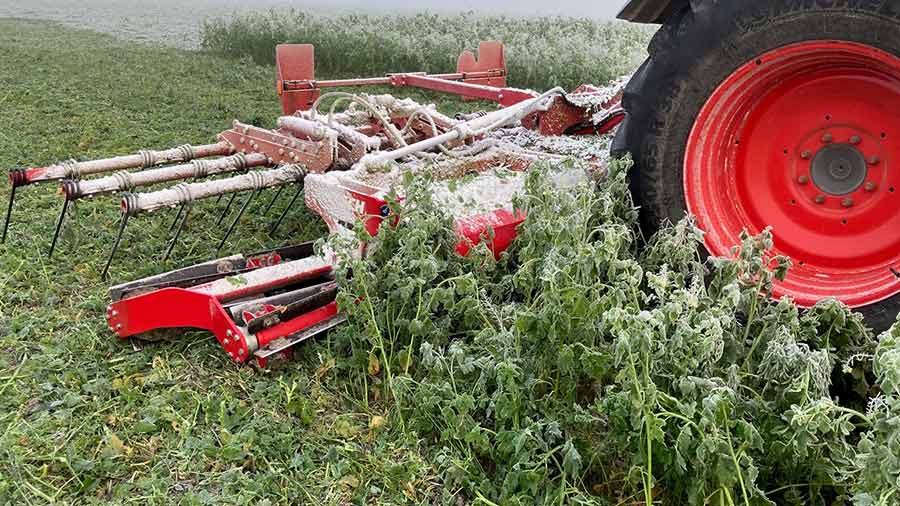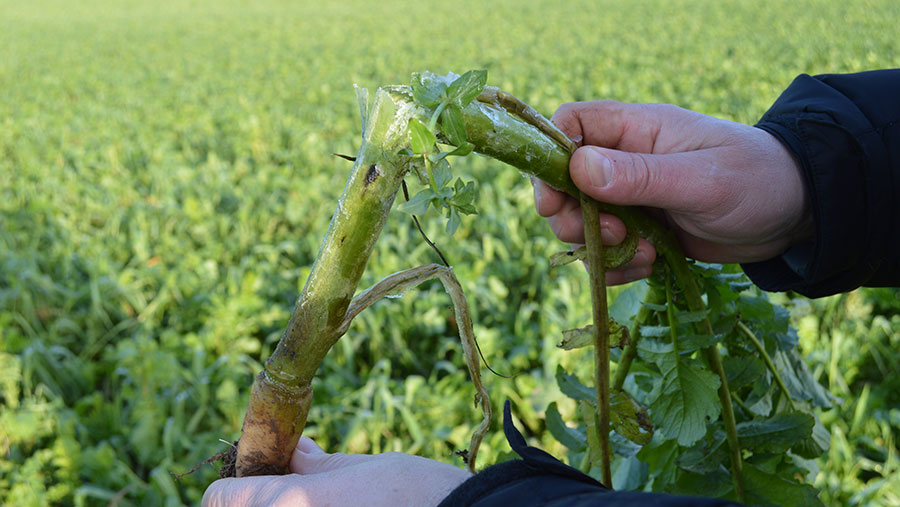How frosty weather helps Cambs grower reduce glyphosate use
 © David White
© David White Cambridgeshire grower David White is taking advantage of the current cold and frosty weather to destroy his cover crops mechanically with a roller or crimper to allow him to reduce the amount of glyphosate herbicide he needs to complete the crop’s destruction.
He is using a Horsch 6m mounted Cultro crimper, on demonstration, alongside his farm’s 30ft Cambridge rolls to assess the benefits of the new machine for destroying cover crops early on his chalky loam soils.
See also: How to achieve the most effective cover crop destruction
The Cambridge rolls need to be used when there is a sharp frost of -5C for the cover crop stems to crack, whereas the crimper with its double knife rollers can work without frost and could prove to be more reliable.
“The crimper is flexible and useful dealing with a mass of vegetation, and you do not have to wait for frost,” he says.
Cutting glyphosate use
Mr White is looking to reduce the use of glyphosate in his regenerative farming system.
He says heavy land cover crops need to be desiccated with glyphosate around Christmas time and then have another glyphosate dose just before spring drilling to clean up weeds such as blackgrass.
By using a mechanical initial destruction he can then reduce glyphosate to just one dose before spring drilling, when any blackgrass can be exposed and not sheltered by well-grown cover crops, containing mustard and beans, on his farm.
All land not sown to winter wheat or winter beans is drilled with cover crops on his 160ha Hawk Mill Farm, Little Wilbraham, just to the east of Cambridge, and subsequently drilled with crops of spring barley or spring oats.

© MAG/David Jones
Heavy frost
Over in Herefordshire, James Young has managed to destroy his cover crops by using Cambridge rolls, aided by heavy frosts with temperature down at -5C.
The stems of the frosted cover crop cracked under the roller, with little crop left a few weeks later.
This allowed him to cut the rate of glyphosate herbicide used to 1 litre/ha as a quick clean-up just before drilling a following crop of spring wheat, compared with a more normal rate of 3 litres/ha.
His family farms 200ha of arable land at Hill House Farm, south-west of Ledbury.
He is being paid by his local water company Severn Trent, to grow cover crops on sensitive areas to protect soils in areas at high risk of nitrate water pollution, while getting the added benefits of more friable and workable soils.
